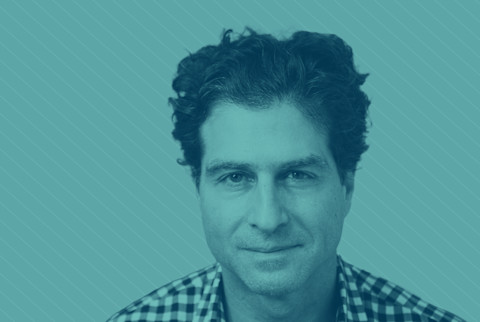I'm A Neurologist: Here Are 3 Surprising Things You Should Know About Memory

Here's what we generally know about memory: It tends to worsen as you age, which means it's important to keep it in tiptop shape while you're young (bring on the brain-supporting foods and mind teasers). But as neurologist and Alzheimer's researcher Scott Small, M.D., tells us on this episode of the mindbodygreen podcast, a few underrated factors can affect your memory—and they don't receive as much attention.
In fact, one or two of his tips may surprise you—they may even seem counterintuitive—but stay with us here. If you're curious about how to enhance your memory (and your mental health at large, while you're at it), Small suggests you heed the below:
It's actually good for your mental health to forget things.
Hear us out: Having a "bad" memory can actually be good for your brain. Of course, a strong memory is crucial for cognition, but according to Small, "You need memory and forgetting to work in balance to sculpt your cognitive abilities, your creative abilities, and your emotional well-being." In other words? As important as it is to remember the details, sometimes it's good to forget.
For example, Small discusses the importance of forgetting in the context of trauma. When your brain is unable to "forget" the emotional stress of a certain event, that's how post-traumatic stress disorder can arise. "That disorder is fundamentally because your emotional memory is off-kilter," he says. "You need to forget some of the emotional valence of those memories; otherwise, you might not be able to function [in everyday life]."
That's not to say you should forget important details, facts, and/or lessons from a traumatic event, but Small says letting go of the emotional stress is important for natural brain function. "It is beneficial to sculpt down the emotional memories to allow us to live going forward."
Sleep is critical.
Add it to the growing list of reasons why sleep is imperative for overall health: Sleep is critical for a healthy memory (are you surprised?). In fact, "one of the main purposes of sleep is to trim down our memories," says Small.
See, your brain encounters countless pieces of information every single day—most of which is extraneous and unnecessary (things you don't even realize you're processing). "Your brain is very good at remembering a thousand details, and most of them are not really critical for your life," he adds. Small compares these memories to an overgrown field: When you sleep, you're "mowing" and "shaping" the lawn to trim down the excess—as a result, the field as a whole becomes healthier (meaning, your brain can better remember the more important items).
When people are sleep deprived, their brains are unable to trim these extra memories—which is why lack of sleep has been associated with impaired working memory1. "Their brains are static with information," says Small. "They can't think clearly, [and in extreme cases] they can even develop perceptual illusions and hallucinations2." He continues, "That, to me, is great proof of why we need forgetting to be cognitively clear."
Social connections can reduce fear memories.
Meaningful social connections are also crucial for overall well-being, but in the context of memory, Small says building relationships can dial down fear memories3 (aka, the emotional memories associated with fear that are formed in the hippocampus and amygdala).
When you have a social interaction, "we secrete oxytocin and create that social bonding," says Small. "One of the main things that oxytocin does is it turns down the areas in our brain that store fear memories4." (In fact, one theory suggests that during times of anxiety or depression, the body might produce more oxytocin in order to encourage social bonding.) On a surface level, this makes sense: After all, it's difficult to establish a social connection if you're fearful and on edge. "You have to open up your heart," says Small. "That requires keeping your fear memories at bay."
The takeaway.
Improving your memory isn't all about brain teasers and healthy foods (although, those are important). According to Small, your sleep schedule and social relationships also have a stake in the memory game—as does your ability to forget.
